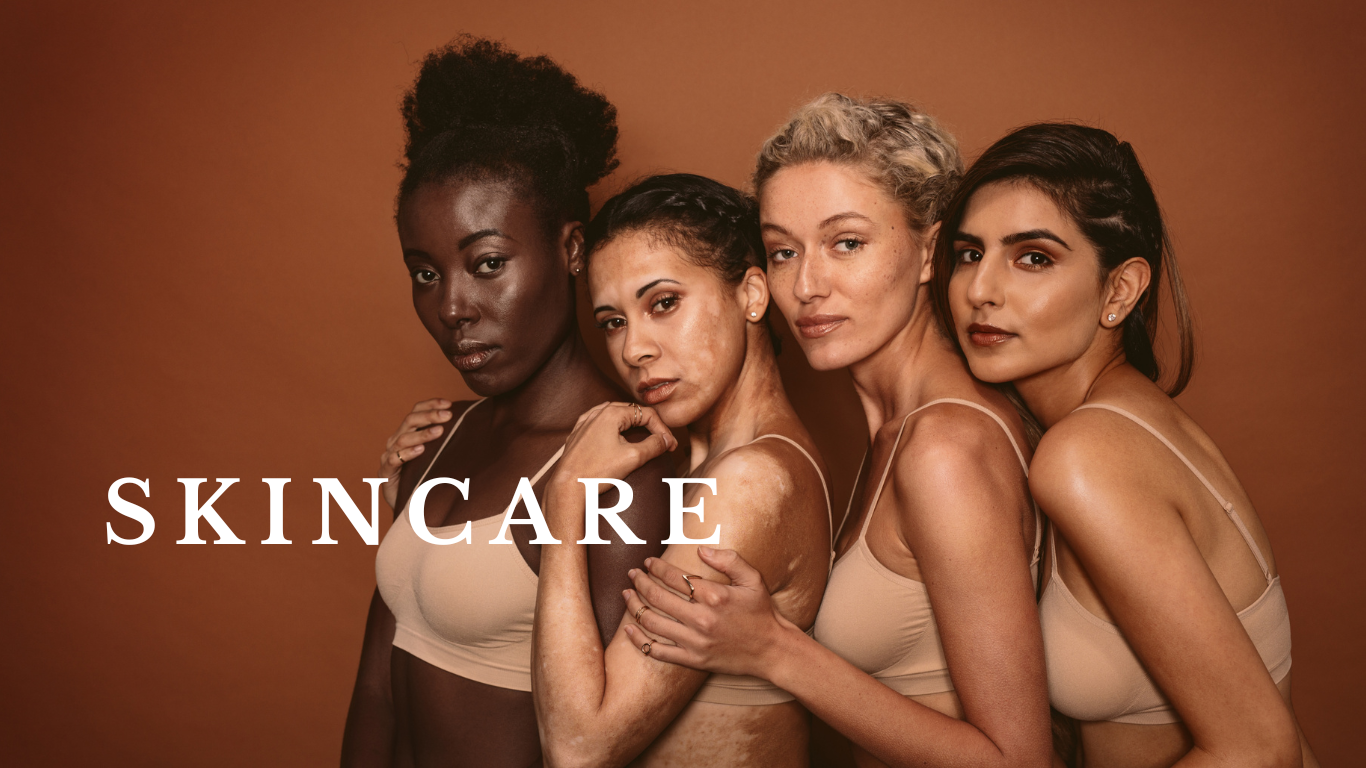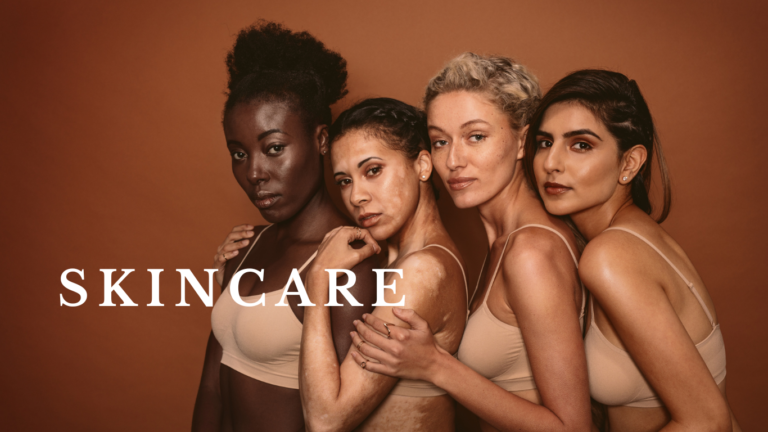Learn why acne is common on dark skin, the unique challenges it presents, and expert tips to treat and prevent acne. Discover effective solutions for clear, healthy skin.
Understanding Acne on Dark Skin: Causes and Solutions
Acne is a common skin concern affecting individuals of all skin tones, but it can present unique challenges for people with dark skin. Beyond the physical symptoms, acne can leave dark marks and scars that are more visible and longer-lasting on melanin-rich skin. In this article, we’ll explore the causes of acne on dark skin, why it may be more persistent, and practical ways to treat and prevent it for a clearer, healthier complexion.
Why Is Acne Different on Dark Skin?
Acne on dark skin often requires specialized care due to the unique characteristics of melanin-rich skin. Here’s why:
– Higher Melanin Levels:
Dark skin contains more melanin, which can lead to post-inflammatory hyperpigmentation (PIH) after acne heals. PIH appears as dark spots or patches that can last for months, even after the acne itself has cleared.
– Increased Sensitivity to Inflammation:
Dark skin may react more strongly to inflammation, which can increase the likelihood of scarring and hyperpigmentation.
– Difficulty with Standard Acne Treatments:
Some acne treatments, like certain laser therapies or strong peels, can cause irritation or uneven skin tone on dark skin if not applied carefully.
Common Causes of Acne on Dark Skin
Acne is a complex skin condition that can be triggered by a variety of factors, many of which are common across all skin tones. Here are some of the main causes:
1. Excess Oil Production
Overactive sebaceous (oil) glands can clog pores, leading to the formation of acne. Dark skin, especially if naturally oil-prone, can be more susceptible to this.
2. Hormonal Fluctuations
Hormonal changes during puberty, menstruation, pregnancy, or due to hormonal conditions like polycystic ovary syndrome (PCOS) can increase oil production and trigger breakouts.
3. Skin Care Products
Using products that aren’t suitable for your skin type or are too harsh can clog pores, irritate the skin, and worsen acne. Look for products labeled “non-comedogenic,” which means they are less likely to clog pores.
4. Diet and Lifestyle Factors
High-glycemic foods, dairy, and stress can all contribute to acne. Lack of sleep and dehydration can also impact skin health, increasing the risk of breakouts.
5. Genetics
Genetics play a significant role in acne development, meaning that if acne runs in your family, you may be more prone to it as well.
How Acne Affects Dark Skin Differently
Acne on dark skin can have unique consequences that extend beyond the breakout itself. Here’s how:
– Post-Inflammatory Hyperpigmentation (PIH):
When acne heals, it can leave dark marks or patches on the skin. This type of discoloration is especially common in dark skin, where melanin production increases in response to inflammation.
– Higher Risk of Keloids and Scarring:
Dark skin is more prone to developing keloid scars—thick, raised scars that can form after significant skin trauma or severe acne.
– Longer Healing Time:
Dark skin may take longer to recover from acne scars and pigmentation issues, sometimes requiring more intensive care or longer treatment periods.
Best Practices for Preventing Acne on Dark Skin
While acne can’t always be avoided, following a consistent skincare routine and making healthy lifestyle choices can help prevent breakouts. Here are some tips for managing and preventing acne on dark skin:
1. Use a Gentle Cleanser
Cleanse your face twice a day with a mild, sulfate-free cleanser. Harsh cleansers can strip natural oils, causing your skin to overproduce oil and triggering more acne..
2. Opt for Non-Comedogenic Products
Choose skincare products and cosmetics labeled as non-comedogenic to avoid clogging pores. This is especially important for moisturizers and sunscreens, which should be light but hydrating.
3. Moisturize Regularly
Even oily skin needs hydration. Use a lightweight, oil-free moisturizer to maintain skin balance and prevent overproduction of oil.
4. Apply Sunscreen Daily
Sunscreen is essential for preventing PIH from worsening. Choose a broad-spectrum sunscreen with at least SPF 30, and look for formulas that won’t leave a white cast on dark skin.
5. Avoid Picking or Squeezing Pimples
Touching or picking at acne increases the risk of scarring and hyperpigmentation. Let your skin heal naturally, or consult a dermatologist if the breakout is severe.
Effective Treatment Options for Acne on Dark Skin
Treating acne on dark skin requires a gentle yet effective approach to avoid irritation and hyperpigmentation. Here are some treatment options:
1. Topical Treatments
– Benzoyl Peroxide: An antibacterial ingredient that helps reduce acne-causing bacteria. Start with a low concentration (2.5-5%) to minimize irritation, and avoid excessive use to prevent drying.
– Salicylic Acid: This beta hydroxy acid (BHA) exfoliates inside the pore, helping to clear out impurities. Use sparingly to avoid irritation, and always follow with a moisturizer.
– Retinoids: Vitamin A derivatives that speed up cell turnover and prevent pores from becoming clogged. Use retinoids cautiously, as they can cause dryness and should be introduced slowly.
2. Chemical Peels
– Gentle Peels Only: Mild peels, such as those containing glycolic or lactic acid, can help exfoliate the skin and lighten dark spots. However, stronger peels should be avoided unless recommended by a dermatologist.
3. Natural Remedies for Dark Spots
– Aloe Vera: Aloe vera has soothing properties that can help calm inflammation and gradually fade dark marks.
– Vitamin C: This powerful antioxidant brightens the skin and inhibits melanin production, which can reduce the appearance of PIH over time.
4. Prescription Treatments
– Antibiotics: For more severe cases, dermatologists may prescribe antibiotics to reduce inflammation and bacteria. This is often combined with topical treatments.
– Hormonal Treatments: For acne related to hormonal imbalances, medications like birth control pills or spironolactone may be effective.
5. Laser and Light Therapy
– Use with Caution: Certain laser treatments, such as Nd:YAG, are generally safe for dark skin tones and can help with acne scarring and pigmentation. However, consult a dermatologist experienced with melanin-rich skin before choosing this option.
The Psychological and Social Impact of Acne on Dark Skin
For many people of color, acne can affect self-esteem, especially when visible on the face. The lingering effects of acne scars or dark spots can lead to emotional distress and feelings of self-consciousness:
– Self-Esteem and Social Interactions:
Persistent acne and dark marks can lower self-confidence, impacting social relationships and daily interactions.
– Cultural Beauty Standards:
In some communities, clear skin is culturally valued, adding additional pressure to maintain a clear complexion.
– Mental Health Considerations:
Acne can sometimes contribute to stress or anxiety. It’s important to address these feelings and consider support from friends, family, or a mental health professional if needed.
FAQs
1. Is acne worse on dark skin?
Acne itself may not be worse, but dark skin is more prone to PIH, which can make the effects of acne more visible and long-lasting.
2. Can sunscreen help with acne on dark skin?
Yes, wearing sunscreen daily can prevent acne scars and dark spots from worsening, making it essential for dark skin.
3. How long does PIH last on dark skin?
PIH can take several months to fade, but with proper treatment and sun protection, it can lighten gradually over time.
4. Are natural remedies effective for acne on dark skin?
Some natural ingredients, like aloe vera and vitamin C, may help reduce inflammation and lighten dark spots, but they are generally slower than medical treatments.
5. What is the best moisturizer for acne-prone dark skin?
Look for lightweight, oil-free, and non-comedogenic moisturizers to keep skin hydrated without clogging pores.
6. Should I see a dermatologist for acne on dark skin?
Yes, consulting a dermatologist is recommended for persistent or severe acne, as they can provide safe, tailored treatments for dark skin.
Conclusion
Acne on dark skin presents unique challenges, but with the right approach, it can be effectively managed. Understanding the causes of acne, adopting a gentle skincare routine, and using targeted treatments can help minimize breakouts and reduce the appearance of dark spots. Remember, achieving clear, healthy skin takes time and patience, so stick to a consistent regimen and consult a dermatologist for guidance.
Disclaimer: This article is for informational purposes only and does not replace professional medical advice. Consult a dermatologist for personalized recommendations.



